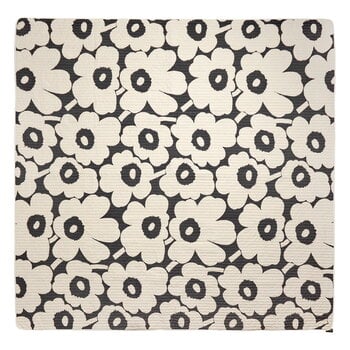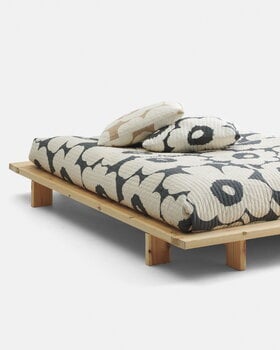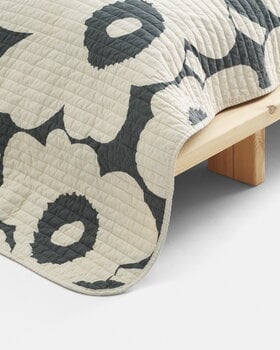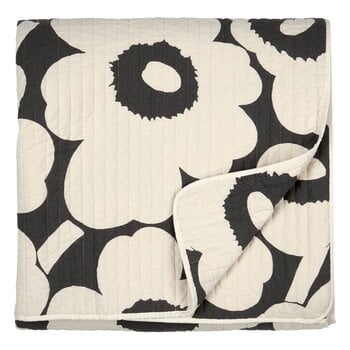Marimekko’s Unikko quilt features Maija Isola’s iconic floral pattern in hues of charcoal and unbleached cotton. The quilted Unikko double bed cover is filled with light and voluminous wadding, making it luxuriously soft and inviting.
The Unikko pattern came about in 1964 after Armi Ratia, the founder of Marimekko, had announced in public that no floral fabrics are designed at Marimekko. Maija Isola did not accept rules or restrictions and designed in protest a complete collection of bold floral patterns: Unikko, a Finnish word that means poppy. Today, Unikko is one of Marimekko's best-known patterns and is recognised worldwide.











